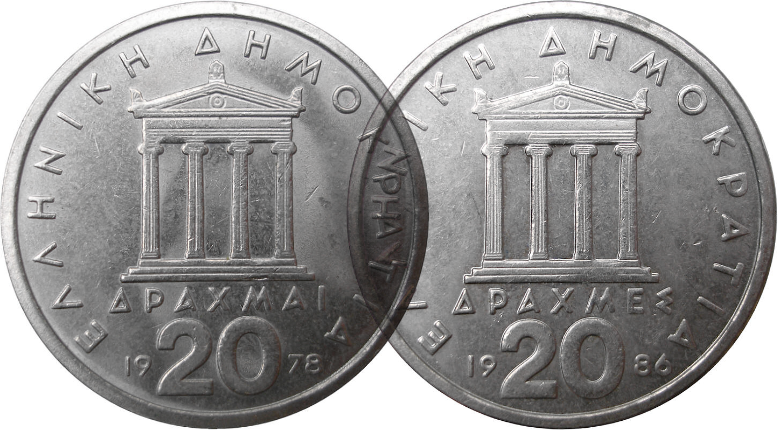Ancient and Modern
A digression on political transliteration
Recently I visited the island of Kephalonia (or, if you prefer, Cephallenia, Cephallonia, Kefallinia, Kefallonia, Kefalonia, or Kephallenia).
I already knew that during the days of the British ‘protectorate’ (from 1815 to 1864) the island was spelt ‘Cephallonia’; and that indeed remains the prevalent British English spelling, as readers of Captain Corelli’s Mandolin will know. However, I was flying from the Czech Republic, where spellings with ‘K’ align more neatly and naturally with both the Modern Greek and Czech alphabets, so the luggage tag said ‘Kefalonia’.
But what really confused matters was the departures board, where the destination appeared as neither Cephalonia nor Kefalonia, but ‘Kefalinia’. It turns out that the ending ‘-inia’ rather than ‘-onia’ is still fairly commonplace among travel agents, airlines and travel review sites.
Tantalisingly, Kephallinia is by far the most ancient spelling, its roots extending way back to Homer’s description of the island’s people as ‘the Kephallenes’. There is even a suggestion that Kephallinia was the true Ithaca, home of Odysseus, rather than the neighbouring island we know as Ithaca today.
The Cephalonia/Kephallinia debate is not unusual. Placenames are particularly susceptible to multiple transliterations and translations. Czech ‘Londýn’ reminds us that London was once ‘Londinium’. Another favourite is the Italian word for Munich - ‘Monaco di Bavaria’. Both Munich and Monaco derive from the word for ‘monk’. But the other Monaco (as in Monte Carlo) is originally from the Greek ‘mono oikos’, meaning a single or unique settlement.
Such variations frequently happen when words are rendered in other languages. But sometimes a single language offers multiple spellings of its own, as a result of regional dialects, or even - as we are about to see - because of political changes.
As a schoolboy, I was lucky enough to have the option of studying Ancient Greek for A level. Its oddly complex grammar included three voices: active, passive and the mysterious and rarely used ‘middle’; moods such as the ‘optative’, for expressing hope; and quirky names for tenses like 'aorist’ (where most people would be content with just ‘past’).
Studying ancient texts at the age of 15 made me acutely aware of the passage of time, the impact of history, the usefulness of rhetoric, and the fascination of etymology, since many words in English traced their origins to Greek and Latin.
When I left school I spent a year in Athens, putting my language skills to the test. Of course a great deal had changed in 2,500 years. The grammar had been massively simplified, as had the rhetoric. And although the written alphabet remained unchanged, the sounds I had been taught had undergone a certain ‘softening’. The letter ‘beta’ (or B) was now pronounced ‘veeta’, and ‘delta’ (D) had become ‘thelta’. Vowel combinations - ‘ei’, ‘oi’ and ‘ui’, as well as the letter ‘eta’ (E) - were now all pronounced identically as ‘ee’.
But strangest of all, two related but completely distinct versions of modern Greek had emerged: dimotiki, the vernacular speech of the everyday citizen, and katharevousa, an artificially-constructed bastard child of ancient Greek which seemed to be used only by newspapers and for communications by the Greek Orthodox church.
Katharevousa was also a political tool. Between 1967 and 1974, Greece had been ruled by a repressive right-wing military junta. Among the changes they introduced was a ban on dimotiki and the forced adoption of the neoclassical katharevousa as the official state language. By the way, katharevousa - appropriately for a fascist-leaning government - means ‘purified language’ (think ‘catharsis’).
The colonels were doing what all fascists do: trying to call back a golden age when things were - according to their simplified view of history - orderly and neat. But the right-wing junta were anything but pure, and after their overthrow, dimotiki was reinstated as the state language.
At the time I lived there in 1981, the two ‘languages’, the natural demotic and the official ‘cleaned-up’ version, operated in tandem. The two could be seen side-by side on road signs (which would point, for example, to ‘Amaroussi’ but also to ‘Amaroussion’) and on coins, the more newly-minted of which gave the amount in ‘drachmes’, while the slightly older ones referred to ‘drachmai’ (see picture above).
That same year, PASOK, Papandreou’s socialist party, swept to power with 48% of the vote - becoming the first socialist government since the 1920s. Their campaign was buoyed by a populist left-wing newspaper called Ethnos (‘The People’). With a design modelled (ironically) on the Daily Mail, it was Greece’s first tabloid newspaper, and one of the first to be printed in demotiki.
I was reminded of all this again when driving around Kephalonia on my way to the memorial to the Italian soldiers murdered by the Nazis twenty-five years before the colonels came to power. I passed a demotiki sign to Argostoli, the main town of the island. I checked on the tourist map provided by the car hire company and could see only the conservative katharevousa placename, ‘Argostolion’. Even today, politics affects the everyday lives of ordinary Greeks.



